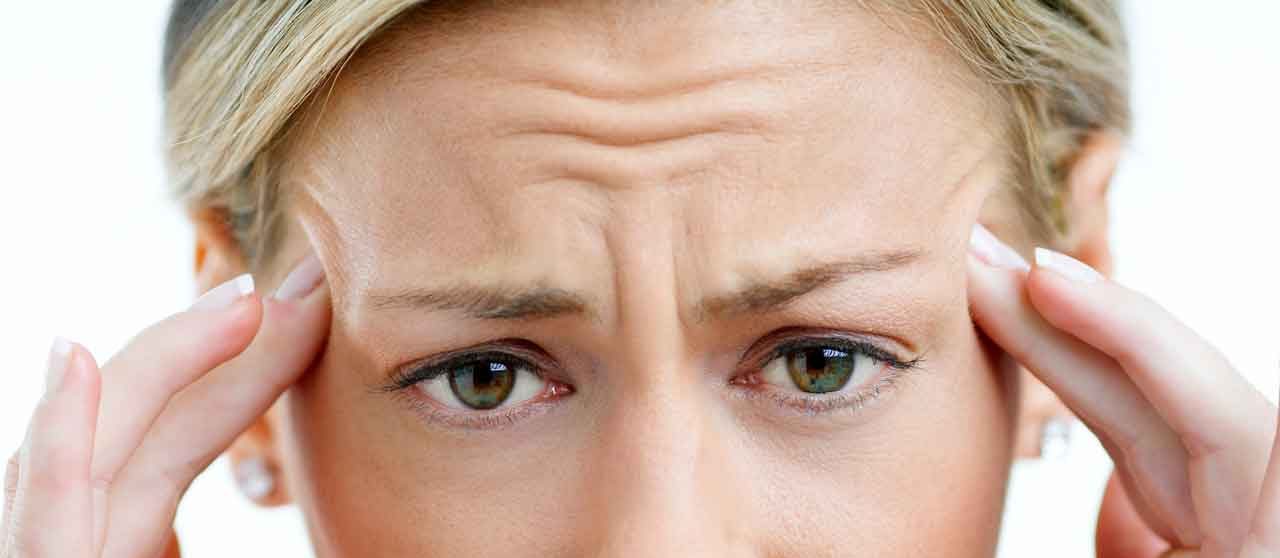Headaches During Pregnancy

If you’re expecting, it’s important to know how to safely relieve a headache — and when a headache warrants calling your doctor ASAP.
Almost everyone has a headache from time to time and, according to the National Institutes of Health, women are three times more likely than men to have one of the most painful types — a migraine.
So it’s no surprise many women have headaches during pregnancy, sometimes more than ever before. On the other hand, you may be surprised and experience fewer or less severe headaches.
YOU MIGHT ALSO LIKE: Drinking While Pregnant Can Cause Fetal Alcohol Syndrome
“Pregnancy can be wonderful and very hard, too, when it comes to headaches,” said John P. Horton, MD, division director of obstetrics and gynecology at Emory University Hospital Midtown in Atlanta. “All forms of headaches can change. Migraines and benign headaches can increase during pregnancy due to changes of hormonal levels. Some women will have worsening migraines because they are no longer able to continue medications that have previously helped.”
“However, the good news is some headaches get better. Migraines may actually improve during pregnancy as the levels of estrogen are more constant,” Horton explained.
Tension headaches, which result from tense neck and scalp muscles, may increase, but they are usually treatable without using medication, according to Horton. Getting some exercise, such as walking, stretching, and making sure you are drinking enough water, often relieves and can even prevent tension headaches. “Magnesium supplementation has also been shown to be helpful for chronic headaches,” Horton added.
If you have a headache that isn’t responding to these self-care measures, call your doctor before self-medicating — even if it is an over-the-counter pain reliever or supplement.
YOU MIGHT ALSO LIIKE: Dizziness During Pregnancy and Other Surprising Symptoms
“Acetaminophen was thought to be safe in pregnancy, although there are now some studies questioning this fact. However, overall, acetaminophen has been found to be relatively fine in small doses,” Horton said. “Many migraine medications have been found to have some negative effects on pregnancy and need to be discussed individually with your doctor to weigh risks versus benefits if you have severe and debilitating headaches.”
Sometimes a headache may indicate you need to call your doctor or get to an emergency room immediately. For example, researchers at Montefiore Health System and Albert Einstein College of Medicine found that pregnant women with high blood pressure who suddenly develop headaches that quickly worsen could be at risk for pregnancy complications.
The research showed that pregnant women with headaches plus high blood pressure were 17 times more likely to have a serious condition requiring immediate medical attention.
"In most of these patients, their elevated blood pressure was driven by preeclampsia," said Matthew S. Robbins, MD, associate professor of neurology at Albert Einstein College of Medicine, who headed the study.
Preeclampsia (previously called toxemia) is a complication that occurs after 20 weeks of pregnancy in a woman whose blood pressure has typically been normal. Although some women have few symptoms, in addition to high blood pressure and headaches, the condition can cause blurry vision, abdominal pain, and signs of damage to an organ system, often the kidneys. Left untreated, preeclampsia may result in serious complications to a pregnant mom and her baby.
Whether you have high blood pressure or not, any unusual headache is a warning sign you need to be checked right away to make sure you — and your baby — are ok.
“If you would describe your headaches as the worst in your life, call your doctor,” Horton said. “Any new headache symptoms, such as visual or sensory changes, should be signs of concern. New dark spots or lights in your vision, loss of sensation, and muscle weakness should constitute immediate medical attention.”
Updated:
April 07, 2020
Reviewed By:
Janet O’Dell, RN